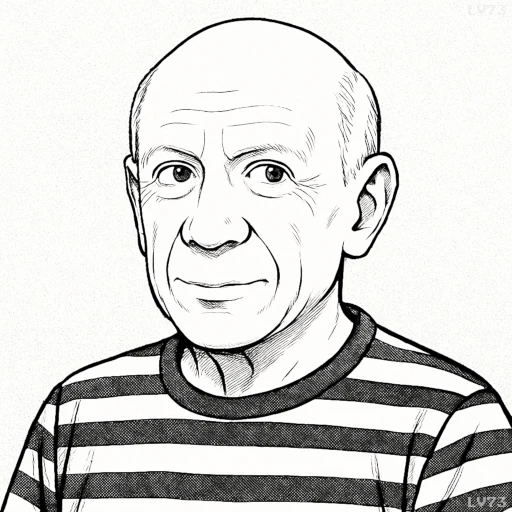“If only we could pull out our brain and use only our eyes.”

- October 25, 1881 – April 8, 1973
- Born in Spain
- Painter, sculptor, printmaker
table of contents
Quote
“If only we could pull out our brain and use only our eyes.”
Explanation
This quote reflects Picasso’s complex relationship with perception and the limitations of human understanding. By suggesting the idea of removing the brain and using only the eyes, he is emphasizing the importance of direct perception and the idea that seeing things purely, without the interference of thought or preconceived notions, would allow us to experience the world in a more authentic and unfiltered way. Picasso often sought to challenge the boundaries of how people perceive reality, particularly through his Cubist and abstract works, which broke away from traditional perspectives and representations of objects.
The quote also speaks to the tension between reason and emotion—between the brain, which processes and interprets information, and the eyes, which offer a more immediate, sensory experience of the world. Picasso’s work was designed to challenge viewers to look beyond surface appearances and engage with art in a more visceral way, without being clouded by intellectual analysis. In modern times, this concept might relate to how we interact with the visual world in a media-saturated age. Often, we interpret images and visuals through layers of cultural conditioning or mental frameworks, rather than seeing them for what they truly are.
A contemporary example can be found in the world of photography, where photographers often strive to capture moments without imposing their own biases or interpretations. Street photographers, for instance, aim to depict the world as it is, without manipulation, allowing the visual narrative to speak for itself. This resonates with Picasso’s idea of experiencing life with unclouded eyes, allowing for a purer, more instinctual understanding of the world around us. However, even in modern times, the challenge remains to find a balance between perception and interpretation—two elements that can either enhance or obscure the truths we seek to understand.
Would you like to share your impressions or related stories about this quote in the comments section?
